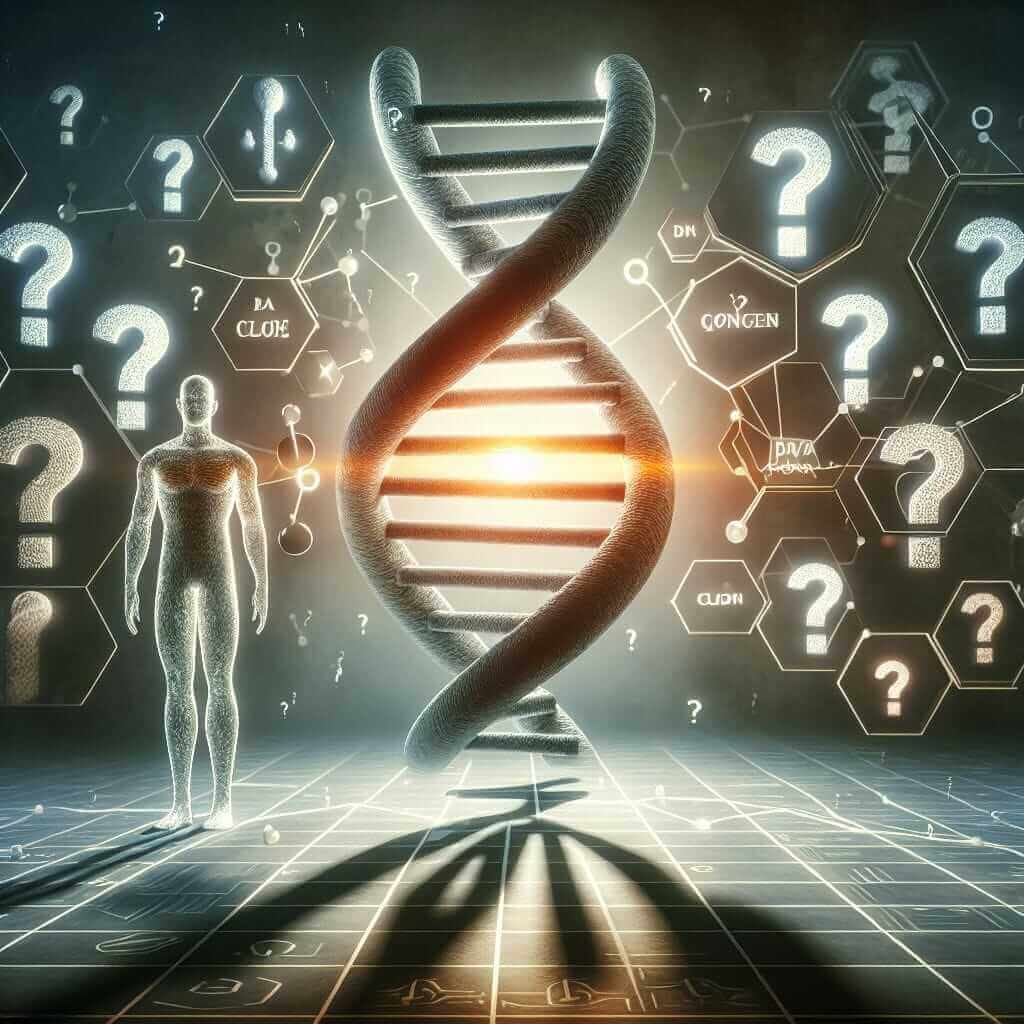The IELTS Reading section can often feature contemporary issues that stimulate thought and discussion, such as “Moral dilemmas surrounding human cloning” and “Ethical considerations in the development of artificial intelligence”. These topics are not only relevant but also involve a range of vocabulary and concepts vital for success in the IELTS exam. This article provides a detailed, practice-ready reading exercise to help you prepare for these kinds of complex topics.
Reading Practice Exercise: “Moral Dilemmas Surrounding Human Cloning, Ethical Considerations in the Development of Artificial Intelligence”
Passage
Human cloning and artificial intelligence (AI) are two of the most significant technological developments of the 21st century. While both promise immense benefits, they also pose ethical dilemmas that society must address.
Human cloning has the potential to revolutionize medicine by providing genetically identical tissues or organs for transplantation. However, the practice raises significant moral questions. For instance, is it ethical to clone a human being? Critics argue that cloning could lead to a loss of individuality and self-worth, as cloned individuals may be seen as mere copies of the original.

Similarly, the development of AI often sparks debates around its ethical implementation. One key issue is the potential loss of jobs due to automation. As AI systems become more capable, there is a growing fear that they will replace human roles in various industries, leading to mass unemployment. Another concern is the use of AI in military applications, which could result in autonomous weapons making life-and-death decisions without human intervention.
In both cases, the technology’s rapid advancement outpaces regulatory measures, creating a grey area where ethical considerations lag behind scientific progress. This scenario necessitates comprehensive dialogue and legislation to ensure these technologies are developed responsibly and ethically.
Section A: Human Cloning
Human cloning involves creating a genetically identical copy of a human. The primary method employed is somatic cell nuclear transfer (SCNT), where the nucleus of a somatic cell is transferred into an enucleated egg cell. This embryo is then implanted into a surrogate mother, leading to the birth of a clone.
While therapeutic cloning, which aims to produce tissues and organs for transplantation, is generally viewed more favorably, reproductive cloning—the creation of a cloned human being—faces widespread ethical opposition. Ethical dilemmas surrounding human cloning include concerns about identity and uniqueness, the potential for exploitation, and the moral status of clones.
Section B: Artificial Intelligence
Artificial intelligence encompasses a variety of technologies, including machine learning, natural language processing, and robotics. AI’s ability to process large datasets and perform complex tasks with precision makes it invaluable across diverse fields such as healthcare, finance, and logistics. Nonetheless, its rise brings ethical issues to the fore.
Issues of transparency and accountability in AI decision-making are critical. The opaque nature of many AI algorithms means that understanding and explaining their decisions can be challenging, raising concerns about bias and fairness. Additionally, AI-driven surveillance systems pose significant privacy risks, as they can be used to monitor individuals’ activities extensively.
To address these ethical concerns, international bodies and governments are developing guidelines and regulations aimed at promoting the responsible development and use of AI. Ensuring informed consent, protecting privacy, and maintaining transparency are pivotal to these efforts.
Questions
Reading Passage: Medium Text
Multiple Choice
-
What is one ethical concern raised about human cloning?
a. High cost of the technology
b. Loss of individuality and self-worth
c. Limited scientific knowledge
d. Difficulty in cloning organs -
One of the ethical issues with Artificial Intelligence is:
a. Its inability to perform complex tasks
b. The loss of jobs due to automation
c. High cost of implementation
d. Low efficiency rates
True/False/Not Given
- True/False/Not Given: Reproductive cloning is widely accepted due to its potential medical benefits.
- True/False/Not Given: AI systems can be entirely transparent in their decision-making processes.
Sentence Completion
- Human cloning using SCNT involves transferring the nucleus of a somatic cell into an ____.
- The rise of AI in various industries raises significant ethical concerns, including ____.
Answer Keys
- b. Loss of individuality and self-worth – Human cloning could lead to a perception of cloned individuals as mere copies.
- b. The loss of jobs due to automation – AI’s capability raises the fear of replacing human roles.
- False – Reproductive cloning is not widely accepted.
- False – Many AI algorithms are opaque and challenging to understand.
- enucleated egg cell – The nucleus is transferred to an egg cell that has had its original nucleus removed.
- transparency and accountability – AI’s ethical concerns include the need for transparent and accountable decision-making.
Common Mistakes
When approaching such complex texts, common mistakes include misunderstanding the key ethical issues due to difficulty in vocabulary and context. It’s essential to practice skimming for main ideas and scanning for details to mitigate this.
Vocabulary
- Somatic cell nuclear transfer (SCNT): (noun) /səˈmætɪk sɛl ˈnukliər trænsˈfɜːr/ – A method of creating a clone embryo by replacing the nucleus of an egg cell with the nucleus of a somatic cell.
- Opaque: (adjective) /oʊˈpeɪk/ – Not able to be seen through; not transparent.
- Reproductive cloning: (noun) /ˌriːprəˈdʌktɪv ˈkloʊnɪŋ/ – The process of creating an identical clone of an entire organism.
Grammar Focus
- Subjunctive Mood: Used to express wishes, suggestions, or hypothetical situations. E.g., “It is essential that AI systems be transparent.”
- Passive Voice: Often used in academic writing. E.g., “The nucleus is transferred into an enucleated egg cell.”
Advice for High Reading Scores
- Practice Regularly: Familiarize yourself with a variety of topics, especially contemporary and ethical issues.
- Expand Vocabulary: Learn advanced vocabulary and context-specific terms.
- Improve Skimming and Scanning Skills: These are crucial for answering questions quickly and efficiently.
Preparing for the IELTS Reading section on topics like human cloning and AI ethics will not only help you practice relevant vocabulary and grammar but also keep you informed on critical global discussions.